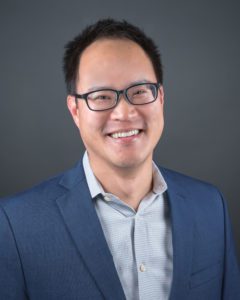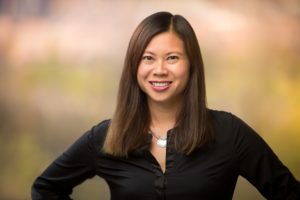This conversation was first posted at AAPIP.org (Asian Americans/Pacific Islanders in Philanthropy). James Liou is a senior director at Equal Measure and a co-chair of the Philadelphia chapter of AAPIP. Hanh Le is executive director of the Weissberg Foundation in Arlington, VA, and a co-chair of the Metro DC chapter of AAPIP.
Can you give us some examples of what’s happening locally in your chapter region, and how that’s reflective of this unique moment?
James: Similar to many parts of the country, there have been some disturbing incidents of Philadelphia-area residents experiencing racial slurs or attacks in the context of the pandemic—but thankfully, also bright spots of community leaders, Asian/Pacific Islanders (API) and others, standing up in support of our communities and fellow communities of color. And certainly, API-led and API-serving organizations have been scrambling to continue providing critical services and supports across the region. Let me describe three levels of leadership response.
API nonprofit and community leaders have been organizing to share and document ways that they and their constituents have experienced, and how they responding, to anti-API harassment and threats in the context of COVID-19. For example, Asian Americans United has been a key hub in this effort and released a collective statement against anti-Asian bias (and targeting of any other community), and hosted a Philadelphia-wide virtual town hall in late March.
City and philanthropic leadership has also been emerging, with the Mayor’s Commission on Asian American Affairs (led by one of our former Philadelphia AAPIP co-chairs) recently releasing a formal statement condemning bias towards APIs. The philanthropic community, led by The Philadelphia Foundation and our local United Way, also established and are coordinating a rapid response fund to provide much needed monetary support for frontline community organizations.
And as for our local AAPIP chapter, we are in active planning with our local giving circle, the Asian Mosaic Fund, to better coordinate with city and philanthropic leadership, and to explore mechanisms to fill in key gaps, including new mechanisms for funding, in specific support of API-led organizations and communities.

James Liou, Senior Director, Equal Measure
Hanh: I’m impressed by the multi-layered efforts in Philadelphia. Though there has not been a region-wide response to heightened anti-Asian racism in the DC area, many of our API nonprofits are ramping up their anti-racism work and/or adjusting their programs to provide and connect community members with supports they need to ensure their physical, mental, and economic well-being. In fact, AAPIP-Metro DC is partnering with the Cherry Blossom Giving Circle on a campaign to raise awareness and funds to support three specific organizations so critical in this moment: Asian American LEAD has been conducting one-on-one and group check-ins for API youth to share their experiences of discrimination and bullying and connect them to the support they need; Asian/Pacific Islander Domestic Violence Resource Project is encouraging those who have experienced a hate incident related to COVID-19 but do not feel comfortable contacting local authorities to reach out to DVRP staff, who can record and monitor these incidents and provide peer support and system navigation; and NAKASEC-VA is working to provide accessible and in-language COVID-19 resources, engaging in local and state COVID-19 related advocacy, developing new ways for community members to be connected (and not feel too isolated), and fundraising for a new national emergency fund NAKASEC national is organizing to specifically provide assistance for individuals shut out of the federal relief package.
What’s one action that you’d encourage all APIs in philanthropy to do?
Hanh: Actively resist and dispel through words and actions stereotypes about Asians being quiet, acquiescent, and any kind of “model minority.” These false narratives do not serve us, our black and brown brothers and sisters, or our country—they only continue to divide and oppress us.
James: Yes, let’s continue to be visible and speak up on API-specific and all issues, wearing our API identity as a key element of our whole selves. But more specifically, reach out to at least one or two others to check in on them in this moment. Share a word of kindness or encouragement or joy. We need to take care of each other if we’re going to make it in the long haul.
What gives you hope? What causes you concern?
Hanh: The DC funding and nonprofit community seems more connected now than it ever has been. I’m also seeing funders more willing to lean into trust-based philanthropy—whether or not they use that terminology, they are getting grants out quickly, unrestricting them, eliminating or significantly streamlining paperwork, and asking for and acting on grantee partners’ needs. There seems to be a general recognition that emergency response to the crisis needs to happen expeditiously, be supported generously, and be coordinated so that our most vulnerable communities are not further under-resourced and disproportionately impacted.
At the same time, I worry that the long-lasting impacts of this crisis are being underestimated and will therefore lack significant, sustained philanthropic support, and that we are not going to invest as aggressively as needed in the systems change work for racial equity and racial justice that needs to be happen through community organizing, advocacy, and civic engagement and other power-building of and by communities of color.
James: I love the words that you use, Hanh, to describe the funder and nonprofit leadership response in DC—they map to what we’re seeing in Philadelphia as well. In addition to the rapid response fund that I mentioned earlier, there are also emergent funds focused on small business relief, on the arts, and others. There have also been food pick up locations across the city that seem to have been thoughtfully designed to meet the needs of all local residents—no identification is required to take advantage of the essential resource. I’m proud of the many leaders and actors behind these efforts.
And yet…I also agree with you about the dissonance between short-term action and what’s needed for long-term systemic change. One of our long-term local AAPIP leaders said the moment reminded him of the early 1990s when the HIV epidemic hit, and there was an immediate rush of philanthropic dollars and attention to reducing the immediate threats of the virus, but in the process, larger issues of justice, equality and discrimination against the LGBT community were put on hold. Similarly, he cautioned us to “not forget the larger API issues of equity, justice and inclusion,” and to invest in the long-term in the nonprofits that work on these issues when this moment recedes. So wise. Short-term urgency and action don’t absolve us from acting—simultaneously and purposefully—to tackle systemic and structural issues.
What’s next?
James: Forgive the former humanities teacher in me, but it reminds me of one of my favorite poems by Katha Pollitt called “Lilacs in September.” It has stayed with me. And I’ll take advantage of this format to actually get the final stanza right, the one that follows the spare and beautiful context of being shocked, split, and unseasonably broken by a literal hurricane: What will unleash / itself in you / when your storm comes? It’s a global storm, and here we are. Who we are and what we do, individually and collectively, is next.
Hanh: 100% agreed. This crisis will have deep and long-lasting impacts on our country, and what we do now will demonstrate what we value. So, now is next—if this crisis doesn’t demonstrate the need to fundamentally change how we’ve been doing just about everything, I don’t know what will.

Hanh Le, Executive Director, the Weissberg Foundation